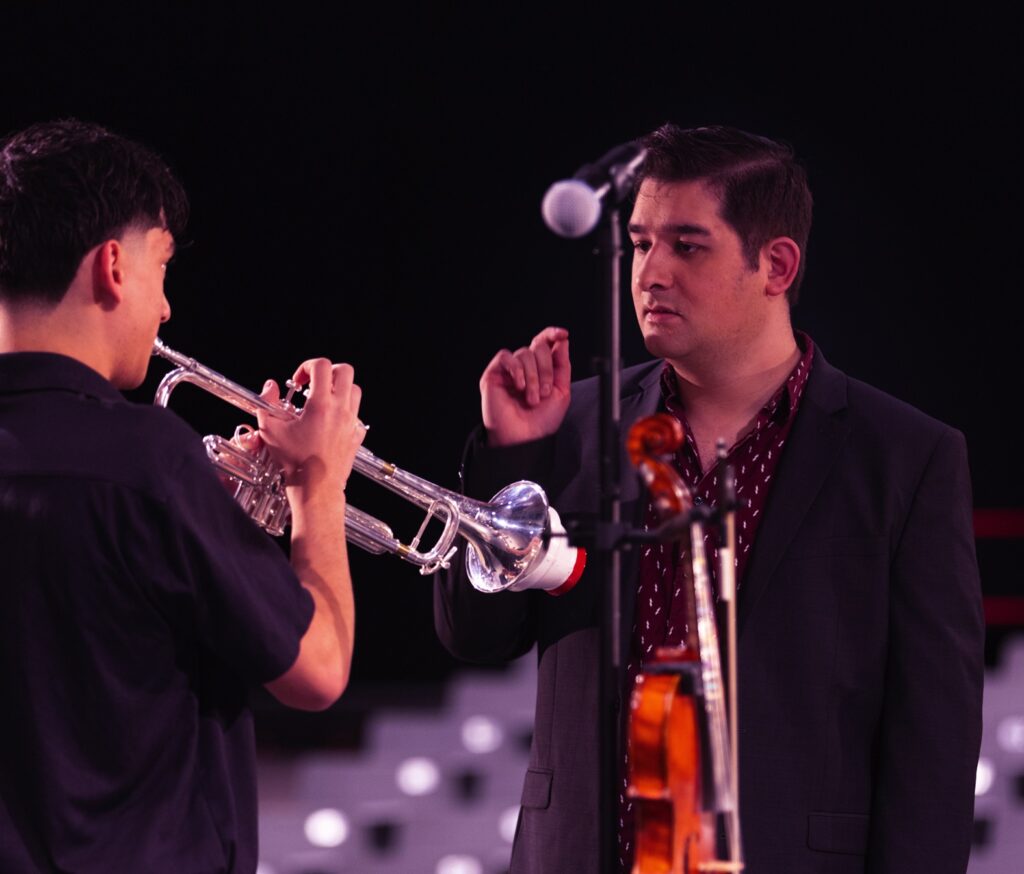Tagged Under:
Stop Fighting Sports
Make your busy students’ lives a little easier by collaborating with coaches to give kids the time to participate in band and sports.
It’s 3:15 p.m. on a Tuesday. You’ve been looking forward to this sectional all day — it’s the one chance this week to fix that trombone entrance before the concert. You’re reviewing your notes when the door bursts open. Three kids rush in, panting, dripping sweat, cleats still on. They just came from practice. They missed rehearsal (again). They’re sorry. They want to make it up.
You nod and smile politely, but inside, you’re irked. You’re tired of this tug-of-war — music vs. sports, week after week. You feel like you’re the only adult in the building who has to beg for time with your students.
Then one of them casually mentions that during sprints, they were humming their clarinet part to keep it fresh. That stops you for a second. Not because it fixes the conflict — it doesn’t. But because, against all odds, they still care.

The Overlap Is Real — and It’s OK
At some point, many of us were told that we’d only build strong programs if students gave us 100% of their time and energy. We were supposed to win their hearts completely, keep them all to ourselves, and then — maybe — they’d sound good enough for a superior rating.
But here’s the thing: That’s not how teenagers work anymore. (If they ever did.) Kids today are juggling way more than we did. Sports, jobs, AP classes, family responsibilities — and yes, sometimes band. The good news? Most of them actually want to do band and sports — and they can.
I’ve had students miss every Tuesday rehearsal, but they showed up prepared because they practiced on their own. I’ve had others who sat in the back row all season, quietly soaking in the music, then became section leaders their senior year. The point is to stop assuming that less time means less commitment.
If a kid shows up sweaty and out of breath, it means they ran to get to you.
And let’s be honest — I’ve had plenty of kids with perfect attendance who didn’t prepare a note. They were present but not engaged. Meanwhile, the kid who’s juggling three sports and a job might be running fingerings in their head while riding the bus to an away game.
Time’s easy to measure. Attention isn’t, but it matters more — a lot more.

Make Them Choose Less Often
One of the most helpful shifts I’ve made over the years is to stop waiting for conflicts and start planning for them.
Get with the coaches in August and compare calendars. Trade some dates and ask for alternating absences if rehearsals or games land at the same time. And when things do conflict, work together to let the student choose without guilt.
This only works if you lead with trust. Most kids aren’t trying to skip out — they’re just trying to survive their schedule. Give them clear expectations, but also real options: “If you miss rehearsal for a game, here’s how you can make it up.” Then — and this part’s important — actually let them make it up. Preferably without turning it into a punishment.
Last year, one of my trumpet players filmed herself playing her part on a field after practice. Was it the best tone? No. Did it show she cared? Absolutely.
I’ve had students record parts in stairwells, church basements, locker rooms — anywhere they could find five minutes and a music stand. And sure, some of those videos were rough. But you know what? I’ve also had students sitting in my room with a perfect setup and zero urgency. The location doesn’t matter nearly as much as the intent.
Some directors have told me, “I don’t accept recordings — if they miss rehearsal, they’re out.” I get it. But if we’re trying to teach accountability, shouldn’t we also be modeling flexibility?
When you stop fighting for time and start fighting for the kid, everything changes.

Shift the Blame (and the Weight)
I used to take it personally. When a student picked volleyball over band, I’d feel like I lost. When a parent prioritized a tournament over a concert, I would get irritated. I told myself it was about respect. But really, it was about control.
Here’s what I’ve learned: It’s not the kid’s fault they love both things. It’s not my job to fix the whole system, but it is my job to make our space one where kids feel seen, heard and welcome.
It may help to reframe who the real enemy is. It’s not the coach, the kid or even the parent. It’s the calendar. It’s the limited number of hours in a week. It’s a system that hasn’t caught up to the fact that students are more than one thing.
When a student misses rehearsal and you feel your blood pressure rising, try this: picture their planner. Mentally add up the hours they’re in class, at practice, at work, doing homework, helping with siblings. There are only so many blocks to go around.

So instead of stewing, I started collaborating. I’ve had some great conversations with coaches who were more than willing to trade days or let a kid come late to warmups. One even came to our concert — in a letterman jacket — and clapped louder than anyone.
I’ve had others who didn’t respond to emails, didn’t want to budge and clearly saw band as optional. That’s frustrating. But it also reminded me: not every coach is the enemy, and not every conversation needs to be a battle.
Some coaches get it. Find those people. And if you can’t find them yet, at least don’t turn the kid into collateral damage.

You Don’t Need Every Minute — Just the Right Ones
This may be the most painful truth, but here it is: You’re not going to get every student’s undivided attention every day. But you can get their best selves in the moments they’re with you.
Don’t chase perfect attendance. Chase the right kind of rehearsal.
Some of my best rehearsals have been with 75% of the group — not because the music sounded better, but because we worked with the group we had. We were present, focused and productive. And no one was sitting in the corner upset about who wasn’t there.
One Thursday afternoon, we were down eight clarinets. Instead of losing the whole rehearsal, I scrapped the original plan and we spent 30 minutes on breathing, tone and phrasing exercises with the group that showed up. Was it the rep we needed to clean? No. But was it the kind of rehearsal that makes kids feel like their time matters? Yes.
That’s the kind of rehearsal that kids remember. It’s what makes them want to come back, even when life is pulling them in other directions.
We get caught up in perfect attendance as a sign of a healthy program. But what if the real measure is: Do they want to be here?
That’s a question worth answering.
__________________________________________
You’re allowed to be frustrated. It’s exhausting trying to build something meaningful in a system that constantly pulls students away. But if you’re spending your energy being mad at sports, you’re going to burn out — and your students will feel it.
They need music teachers who don’t just demand their time but earn it. So, stop fighting sports. Start fighting for your kids — all of them. Even the sweaty ones in cleats.















